In today’s fast-paced and overstimulated world, attention-deficit/hyperactivity disorder (ADHD) has emerged as one of the most widely discussed neurodevelopmental conditions affecting both children and adults. While conventional treatments like stimulant medications and behavioral therapy remain the gold standard, many individuals are increasingly exploring natural remedies to complement or enhance their approach. Among these alternatives, certain herbs have gained recognition for their potential to support focus, improve memory, and promote mental clarity without the harsh side effects often associated with pharmaceuticals. But which is the best herb for ADHD? And can nature truly offer science-backed support for this complex condition?
You may also like: Best Herb for ADHD? Evidence-Based Natural Remedies and Herbs for ADHD in Women
To answer these questions, we need to consider the broader landscape of herbal interventions, their mechanisms of action, and their role within integrative cognitive health practices. By exploring research-backed herbs and integrating lifestyle strategies such as memory recall exercises and consistent memory practice, we can better understand how these natural tools may benefit those with ADHD.
Understanding ADHD and the Quest for Natural Interventions
Attention-deficit/hyperactivity disorder is characterized by inattention, impulsivity, and hyperactivity, often disrupting academic, professional, and social functioning. Traditionally, stimulant medications like methylphenidate and amphetamines are prescribed to manage these symptoms. However, these drugs come with potential side effects, including appetite suppression, insomnia, irritability, and, in some cases, cardiovascular concerns. As a result, interest in natural alternatives has surged, particularly among adults who seek holistic management strategies or parents wary of medicating their children.
This growing interest is rooted in both cultural shifts toward integrative wellness and a desire for long-term, sustainable cognitive support. Herbs, as part of this trend, are gaining recognition not as replacements for medical treatment but as complementary agents that can be used alongside traditional therapies. The key lies in selecting herbs with evidence-based benefits for attention, memory, and overall brain function—and understanding how these herbs work within the broader framework of cognitive health.
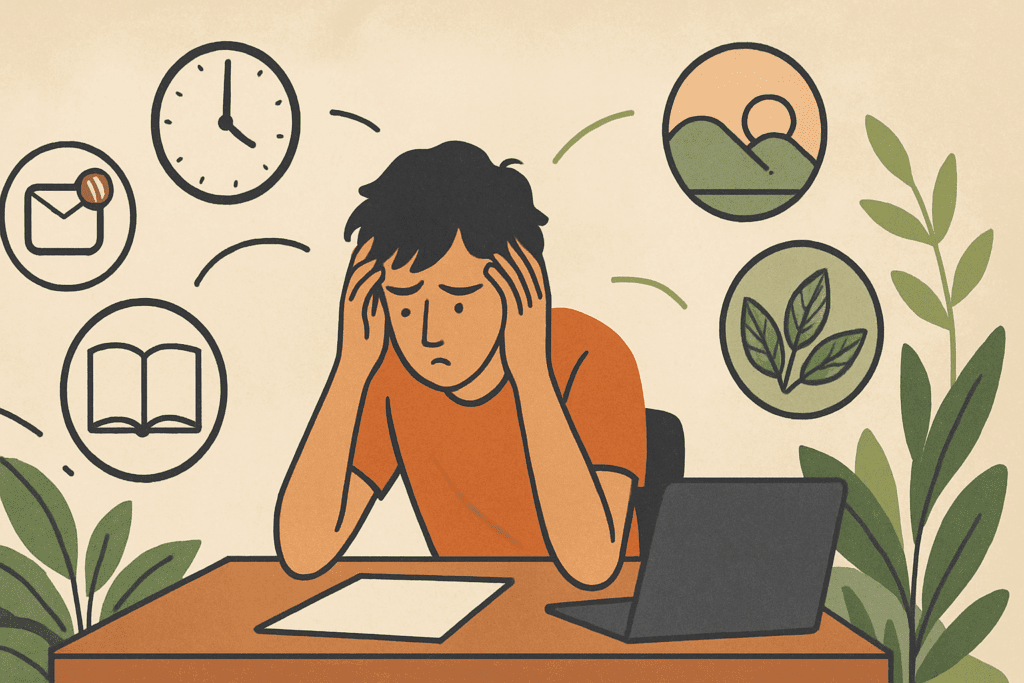
Bacopa Monnieri: The Ayurvedic Star of Memory Enhancement
Among the most researched herbs in the context of cognitive health and ADHD is Bacopa monnieri, a staple of traditional Ayurvedic medicine. Known for its adaptogenic properties, Bacopa helps the brain respond to stress while enhancing information processing and memory formation. Several randomized controlled trials have demonstrated Bacopa’s potential to improve attention and working memory in both healthy individuals and those with cognitive impairments.
One key mechanism behind Bacopa’s efficacy is its ability to modulate the cholinergic system, which plays a central role in learning and memory. By increasing the availability of acetylcholine, a critical neurotransmitter, Bacopa supports synaptic communication and cognitive processing speed. Moreover, its antioxidant and neuroprotective properties contribute to long-term brain health, making it a compelling candidate for ADHD support.
For individuals engaging in memory recall exercises or regular memory practice routines, Bacopa may enhance retention and recall speed. Its effects are typically cumulative, requiring several weeks of consistent use before benefits become noticeable, which aligns well with structured cognitive training programs that emphasize gradual improvement over time.
Ginkgo Biloba: The Circulatory Enhancer for Mental Clarity
Ginkgo biloba is another plant-based remedy frequently mentioned in the context of ADHD, particularly for its reputed effects on mental clarity and cognitive endurance. As one of the oldest living tree species on Earth, Ginkgo has been used in traditional Chinese medicine for centuries. Its leaves contain flavonoids and terpenoids, compounds known to improve blood flow and exert antioxidant effects.
In individuals with ADHD, impaired cerebral circulation may contribute to reduced alertness and cognitive fatigue. Ginkgo’s vasodilatory effects help enhance oxygen and nutrient delivery to brain cells, which may improve attention span and task performance. Some studies have found that combining Ginkgo with Ginseng or prescription medications can enhance therapeutic outcomes in children and adolescents with ADHD.
Although Ginkgo is not a magic bullet, its potential synergy with memory training techniques is notable. Those incorporating memory recall exercises into their daily routine may find that Ginkgo helps reduce mental fog, allowing for greater clarity and focus during study or work sessions. Consistent memory practice combined with Ginkgo supplementation may amplify cognitive resilience and support attention regulation over time.
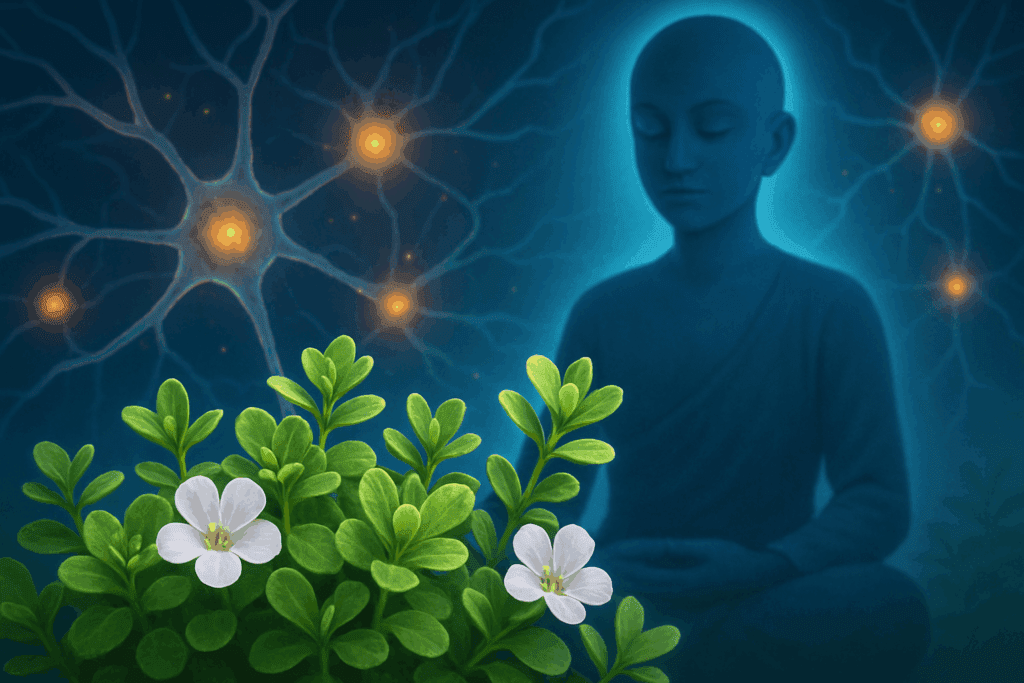
Rhodiola Rosea: The Adaptogen for Mental Energy and Stress Reduction
ADHD often comes with emotional dysregulation and sensitivity to stress, which can exacerbate symptoms and lead to burnout. In this context, Rhodiola rosea stands out as a powerful adaptogen with evidence-based benefits for stress resilience and mental stamina. Native to cold climates in Europe and Asia, Rhodiola has been traditionally used to combat fatigue, improve mood, and enhance mental performance.
Its active compounds, including rosavin and salidroside, support the regulation of cortisol and other stress-related hormones. By reducing physiological stress responses, Rhodiola may indirectly support cognitive functions such as sustained attention, impulse control, and working memory. Some studies suggest that Rhodiola can improve processing speed and reduce symptoms of fatigue-induced brain fog—common complaints among individuals with ADHD.
When combined with memory recall exercises or structured learning sessions, Rhodiola may help users maintain energy levels and focus across longer periods of cognitive demand. Its uplifting yet calming properties make it an ideal herb for individuals who experience anxiety alongside their ADHD symptoms, offering a gentle but effective way to improve mental clarity.
Gotu Kola: The Brain Tonic of the East
Often overshadowed by more well-known herbs, Gotu kola (Centella asiatica) is another traditional remedy with promising applications for ADHD and cognitive enhancement. Known as a brain tonic in Ayurvedic and Chinese medicine, Gotu kola supports neurogenesis, synaptic plasticity, and vascular integrity. Emerging research suggests that it may boost memory, improve mood, and promote calm alertness—qualities highly relevant for individuals with ADHD.
Gotu kola’s saponins and triterpenes have been shown to enhance learning and memory in animal models and reduce symptoms of anxiety and depression in humans. While clinical data specifically on ADHD is still limited, its cognitive and emotional benefits suggest strong potential as a supportive herb in an integrative approach to attention disorders.
Incorporating Gotu kola alongside daily memory practice may foster greater consistency and long-term improvement. Because it supports both the structural and functional aspects of brain health, it may be particularly useful for individuals seeking holistic strategies that address attention, emotional regulation, and neural resilience simultaneously.
Panax Ginseng: The Energy-Modulating Cognitive Enhancer
Panax ginseng, often referred to as Asian or Korean ginseng, has long been celebrated for its adaptogenic effects on mental and physical performance. In ADHD research, Panax ginseng has gained attention for its ability to modulate neurotransmitter activity, particularly dopamine and norepinephrine—two key players in attention regulation.
Some clinical trials have explored Panax ginseng as a complementary therapy for children with ADHD, showing moderate improvements in attention and behavior. Its ginsenosides are believed to exert neuroprotective effects and support synaptic plasticity, which can enhance cognitive performance when combined with consistent brain-training activities.
For adults and children who incorporate memory recall exercises into their wellness routines, Panax ginseng may offer an energizing yet balanced boost. Unlike caffeine, which can cause jitteriness or rebound fatigue, ginseng supports sustained energy without overstimulation. This makes it an excellent candidate for those looking to enhance focus and cognitive resilience through natural means.
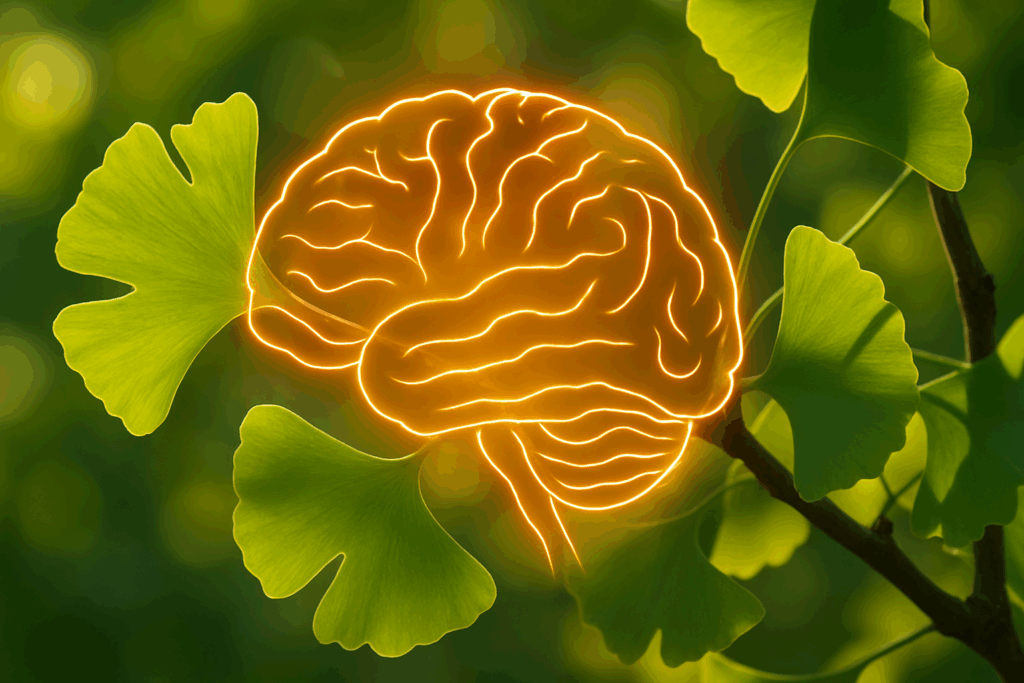
Integrating Herbal Support with Memory Recall Exercises and Memory Practice
While herbal remedies can provide significant support for attention and memory, their effects are most pronounced when integrated into a broader cognitive health strategy. One of the most effective ways to maximize herbal benefits is through the regular use of memory recall exercises and systematic memory practice. These techniques activate neuroplasticity, improve information retention, and reinforce learning patterns—outcomes that can be potentiated by the cognitive-enhancing properties of herbs.
Memory recall exercises can take many forms, including active recall methods, spaced repetition, and visualization strategies. When paired with herbs like Bacopa or Gotu kola, these exercises may yield faster recall times and longer-lasting memory retention. Similarly, Rhodiola or Panax ginseng can help users sustain the mental energy needed to maintain rigorous memory practice routines over extended periods.
Incorporating these memory-building techniques into daily routines creates a positive feedback loop. As herbal support enhances mental clarity and cognitive stamina, users are better equipped to engage in demanding mental activities. In turn, regular practice strengthens neural pathways and makes subsequent memory tasks easier, creating a compound effect that reinforces both mental performance and emotional wellbeing.
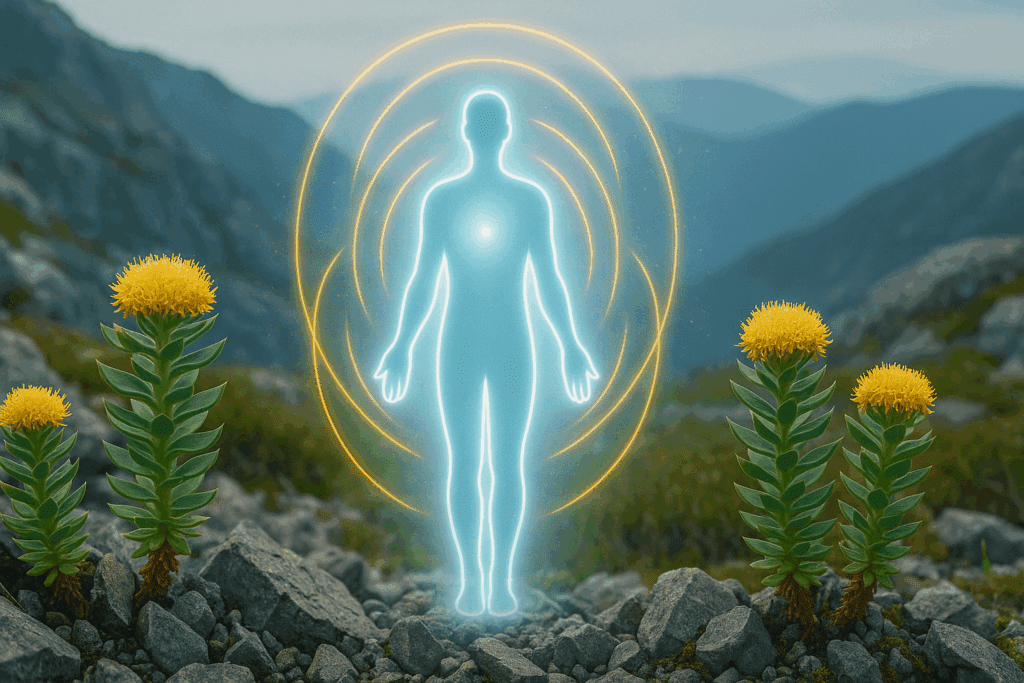
The Importance of Personalized Herbal Protocols and Medical Oversight
Despite the promising nature of natural remedies, it’s essential to acknowledge that herbal support is not one-size-fits-all. Different individuals may respond differently to specific herbs based on genetics, age, existing health conditions, and concurrent medications. Moreover, while most of the herbs discussed here have a strong safety profile, they can still interact with pharmaceuticals or cause side effects in sensitive individuals.
This underscores the importance of working with a knowledgeable healthcare provider, such as a naturopathic doctor, integrative physician, or clinical herbalist. These professionals can help design a personalized protocol that aligns with the individual’s unique needs and goals. They can also monitor progress, adjust dosages, and ensure that herbal remedies do not interfere with existing treatments or underlying health conditions.
Additionally, sourcing high-quality herbal supplements from reputable brands is critical. Not all products are created equal, and factors such as plant origin, extraction method, and third-party testing can significantly influence efficacy and safety. Consumers should look for brands that prioritize transparency, quality assurance, and clinical backing.
Emerging Trends in Natural ADHD Support and Future Research Directions
As interest in natural cognitive enhancers continues to grow, research into herbal remedies for ADHD is expanding. While existing studies are promising, more large-scale, placebo-controlled trials are needed to validate the efficacy and safety of specific herbs. Researchers are also beginning to explore how combinations of herbs may produce synergistic effects, potentially enhancing cognitive outcomes more than single-ingredient formulas.
Another promising area of investigation involves the integration of digital health tools with natural remedies. Apps that guide users through memory recall exercises, cognitive training games, and lifestyle tracking may enhance adherence to herbal protocols and provide real-time feedback on cognitive improvements. Such integrative approaches could transform how individuals manage ADHD and cognitive challenges in the future.
Furthermore, growing awareness of the unique needs of women with ADHD is leading to more research on gender-specific interventions. Hormonal fluctuations, social expectations, and underdiagnosis have historically limited the visibility of ADHD in women. By examining how herbs and memory practice can be tailored to support women’s cognitive health, future protocols may become even more inclusive and effective.
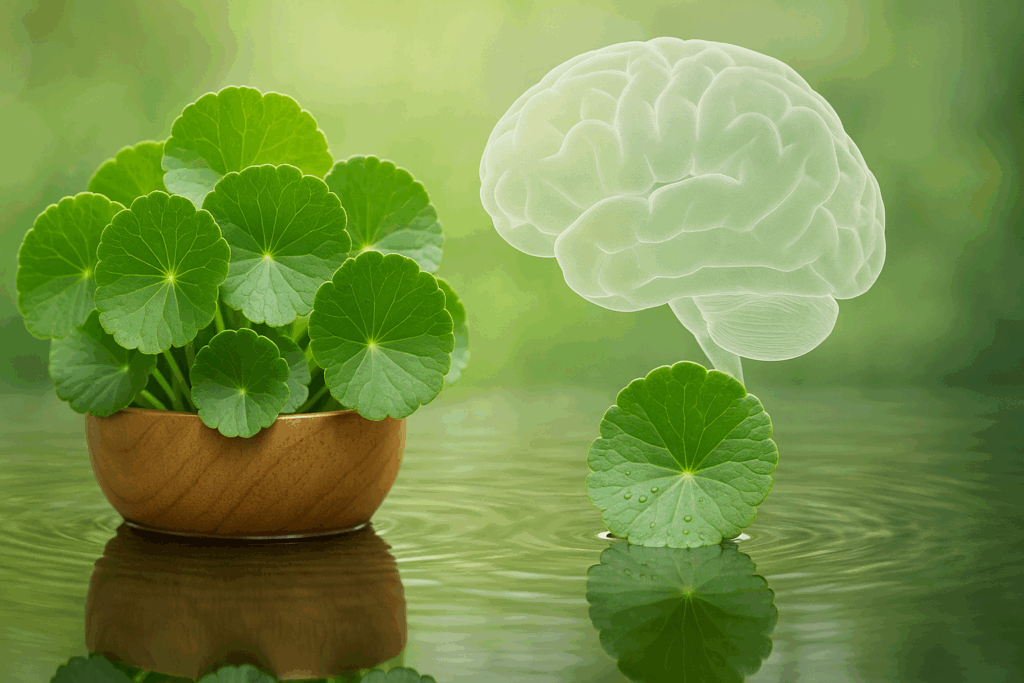
Frequently Asked Questions: Natural Herbs and Cognitive Techniques for ADHD Support
What role does diet play in enhancing the effects of herbal remedies for ADHD?
Diet plays a pivotal role in shaping how effectively the brain can respond to herbal interventions for ADHD. Consuming nutrient-rich foods, especially those high in omega-3 fatty acids, B vitamins, and magnesium, can synergize with herbs like Bacopa monnieri or Rhodiola rosea. For example, pairing Ginkgo biloba supplementation with a diet rich in flavonoid-containing fruits may enhance its circulatory benefits. Beyond nutrition, consistent cognitive stimulation through memory recall exercises allows the brain to capitalize on improved blood flow and neurotransmitter balance. For individuals committed to memory practice, a diet that supports brain plasticity can enhance the retention of newly acquired skills and information.
Can herbs support executive functioning challenges commonly seen in adult ADHD?
Yes, certain herbs offer targeted support for executive functions such as task organization, impulse control, and sustained focus, which are often impaired in adults with ADHD. Adaptogens like Panax ginseng have been shown to modulate stress hormones, creating a more balanced emotional state that supports clear decision-making. When combined with structured memory recall exercises, these herbs may enhance not just memory but also the strategic planning involved in completing tasks. Adults who engage in consistent memory practice often find that their improved mental discipline enhances executive functioning outcomes. Importantly, herbs may offer a gentle, long-term route to mental clarity, particularly for adults seeking non-stimulant alternatives.
Are there gender-specific considerations when choosing herbs for ADHD?
Gender does influence how individuals respond to both pharmaceutical and herbal interventions for ADHD. Hormonal fluctuations, particularly in women, can affect neurotransmitter sensitivity and stress reactivity. Herbs like Gotu kola may be especially well-suited for women with ADHD due to its calming and mood-stabilizing effects. Coupling this with targeted memory practice routines may yield improved consistency in focus during hormonal cycles. Additionally, memory recall exercises tailored to daily tasks or career goals can help women track progress and mitigate the cognitive fluctuations that may accompany hormonal changes.
How do herbal remedies compare to nootropic stacks used for cognitive enhancement?
Herbal remedies often provide a more holistic and gentler alternative to synthetic nootropic stacks, which may offer faster but more volatile results. While nootropic stacks can increase neurotransmitter activity rapidly, herbs like Bacopa monnieri build cognitive resilience over time by supporting neuroplasticity and reducing oxidative stress. Individuals who use herbs in conjunction with memory practice often report more sustainable improvements in attention and recall. Moreover, memory recall exercises help reinforce the neural pathways targeted by natural compounds, providing a safer, long-term path to cognitive enhancement. This integrative approach offers fewer side effects and aligns well with individuals seeking balance rather than overstimulation.
Can memory recall exercises make herbal treatments more effective for ADHD?
Absolutely. Memory recall exercises serve as a cognitive scaffold that enhances the action of herbs known for boosting brain function. For example, engaging in active recall while using Rhodiola rosea can optimize stress resilience and working memory. The dynamic nature of memory practice not only strengthens the hippocampus but also amplifies the cognitive gains attributed to herbal support. Over time, this dual approach creates a robust mental framework, making individuals more resistant to distraction and mental fatigue. This synergy is particularly valuable for ADHD, where both attention and memory consolidation are often compromised.
How long should someone take herbal supplements before seeing cognitive benefits?
Most herbal remedies require consistent use over several weeks to months before yielding noticeable cognitive benefits. Bacopa monnieri, for instance, often takes four to six weeks of daily use to improve recall and attention span. This timeline dovetails with the gradual nature of memory recall exercises, which also demand consistent practice for measurable gains. Integrating memory practice during the supplement period can help maintain motivation by producing early cognitive wins, such as improved short-term memory or faster recall speed. Patience and consistency are crucial, and tracking cognitive performance over time can help validate the effectiveness of both the herbs and the training.
Are there specific memory practice routines that complement herbal use best?
Certain memory practice techniques are especially well-suited to herbal-enhanced cognitive routines. Spaced repetition, for instance, helps solidify information in long-term memory and aligns well with the slow-building effects of Bacopa and Ginkgo. Visualization and associative recall exercises can further stimulate hippocampal activity, enhancing the brain’s responsiveness to neuroprotective herbs. Journaling memory recall sessions or using digital tracking apps can help identify which routines yield the best outcomes when paired with herbal protocols. Over time, personalizing these practices leads to improved attention, stronger mental endurance, and better retention of both academic and everyday information.
Can herbal supplements help improve social cognition and interpersonal focus in ADHD?
Yes, certain herbs can influence social cognition, particularly in areas like empathy, emotional regulation, and conversational memory. Herbs such as Rhodiola and Ginkgo may help reduce social anxiety and improve verbal fluency, aiding in smoother interpersonal interactions. These effects are particularly amplified when combined with targeted memory recall exercises that simulate social scenarios, such as role-playing or reflective journaling. Regular memory practice focused on names, facial recognition, or shared experiences can significantly enhance relationship-building skills. This is especially relevant for ADHD individuals who struggle with social nuances and maintaining connection in conversations.
What are the potential risks of combining multiple herbs for ADHD support?
While combining herbs can be effective, it introduces complexity that must be navigated with care. Interactions between herbs like Ginkgo and Panax ginseng may amplify certain effects, such as increased alertness, which could lead to overstimulation if not properly dosed. Individuals should be especially cautious if they are also engaging in rigorous memory practice, as heightened cognitive stimulation from both sources may lead to fatigue or irritability. Consulting a healthcare provider experienced in herbal medicine can ensure that any combination aligns with one’s health status and cognitive goals. A thoughtful approach that includes journaling the impact of both herbs and memory recall exercises can help maintain balance.
How can I measure the effectiveness of an herbal ADHD protocol that includes memory training?
To assess effectiveness, it’s important to track both subjective experiences and objective outcomes over time. Journaling cognitive benchmarks—such as focus duration, recall accuracy, and emotional resilience—can provide valuable insights into daily functioning. Many individuals also use digital tools or mobile apps that incorporate memory recall exercises and provide performance analytics. Pairing this data with feedback from coaches, therapists, or healthcare providers can create a more comprehensive picture of progress. Ultimately, integrating consistent memory practice with herbal protocols allows for a measurable and nuanced approach to managing ADHD symptoms.
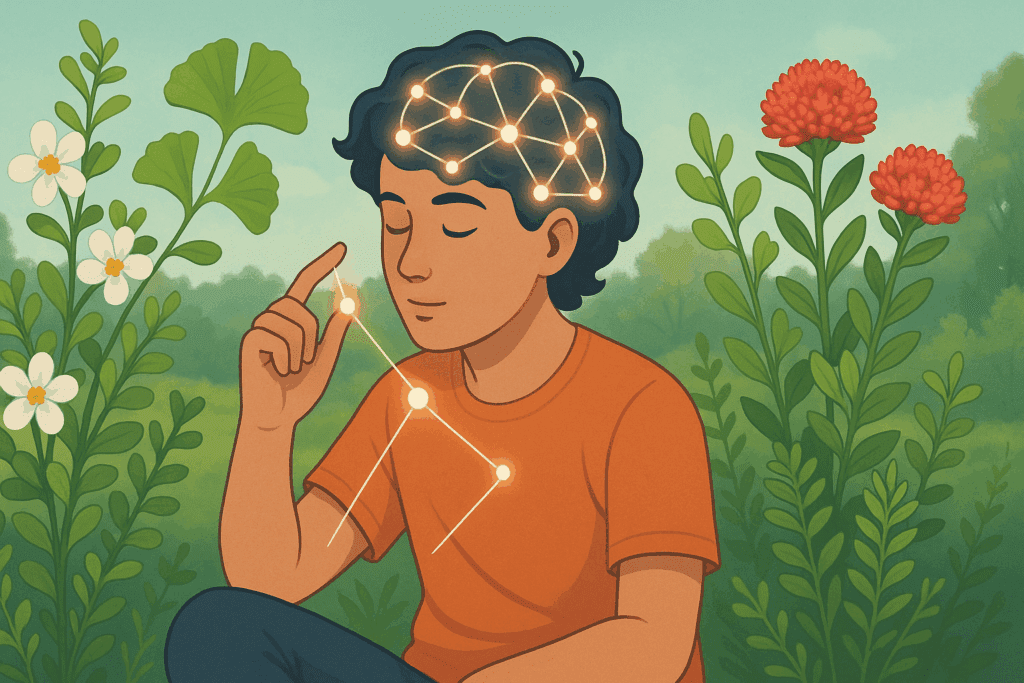
Conclusion: Choosing the Best Herb for ADHD and Unlocking Cognitive Potential
Selecting the best herb for ADHD is not about finding a universal cure but rather discovering the right support for individual needs. Herbs like Bacopa monnieri, Ginkgo biloba, Rhodiola rosea, Gotu kola, and Panax ginseng each offer unique benefits that can enhance focus, memory, and mental clarity when integrated with lifestyle strategies such as memory recall exercises and consistent memory practice. When these natural tools are thoughtfully combined, they create a foundation for improved cognitive performance, emotional balance, and overall mental wellbeing.
As science continues to uncover the neurobiological mechanisms behind herbal remedies, and as holistic wellness becomes more widely accepted, individuals with ADHD have more tools than ever to navigate their cognitive journeys. With the guidance of informed healthcare professionals and a commitment to structured mental training, natural remedies can play a valuable role in optimizing brain health and unlocking greater potential for attention, learning, and memory retention.


